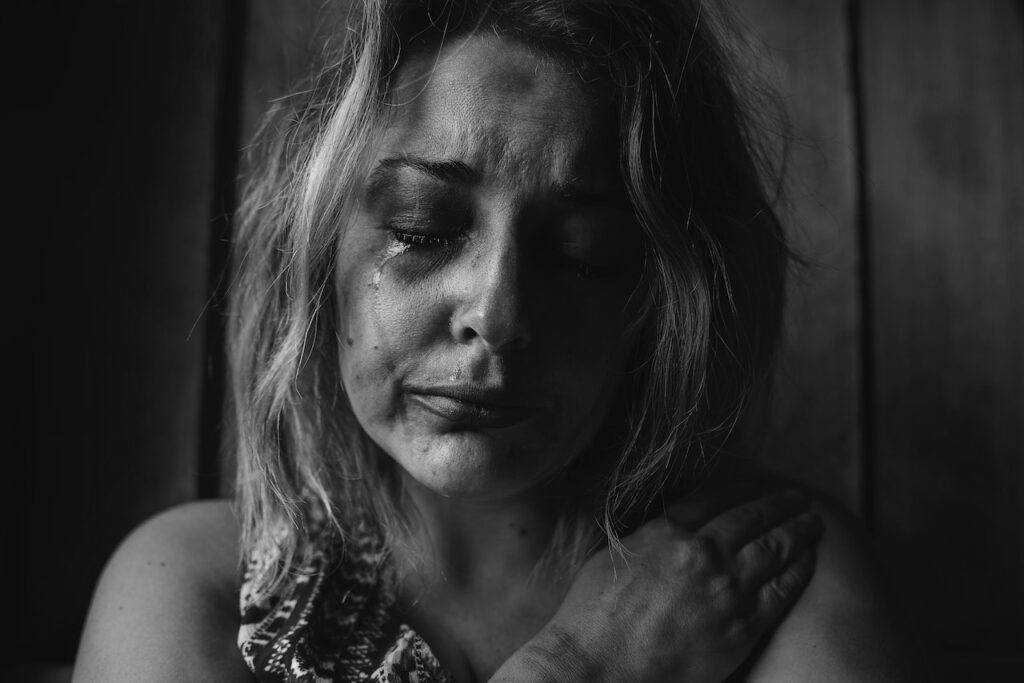

Darkest moment is a term you’ll hear a lot, especially when learning how to plot. Last post, we discussed how critical normal world is for hooking the reading audience early, then never letting go until THE END. Every piece of the “plot” serves a critical function and understanding that function, I feel, makes us better writers.
Oddly, as many years as I’ve been blogging, I don’t recall ever dedicating an entire post to exploring the “darkest moment,” what it is, why it matters, and the difference it can make in the overall quality of our stories.
Why “darkest moment” as a topic?
I can’t talk about it, but my family was hit with a major tragedy unlike anything I’ve ever experienced.
At close to fifty years old, I’ve been through many losses, but nothing like this. Just imagine bad, then multiply that by a factor of a thousand. I only thought I understood the darkest moment until this summer.
***It’s okay. We’ll get through it. We are slowly righting from the blow, but it is/was…bad.
And, since we writers are a thrifty lot, nothing in life ever goes to waste…especially trauma.
What is the Darkest Moment?


Seems like a simple answer, but is anything but. Commonly, we hear that the darkest moment is that point in the story, close to the end of the book/movie, when the main character (usually the protagonist) loses all hope. We ALL know this point, even if one is not a writer.
All of us have watched a movie where it looks like the good guys totally have it handled, the plan is brilliant and SURELY they’re going to win.
But wait…there’s thirty-five minutes left in the movie.
We (the audience) inherently sense something is up.
The team is ready, we have had the montage and are ready for ANYTHING!
*sings* If you need to learn a lot in a really short time, you need a montage! A montage!
Or we read a book. Same thing happens. SURELY the character(s) have this down! What can go wrong? Except there’s another fifty pages remaining. Something definitely sus is going on there.
So WHY?
Everybody Arcs
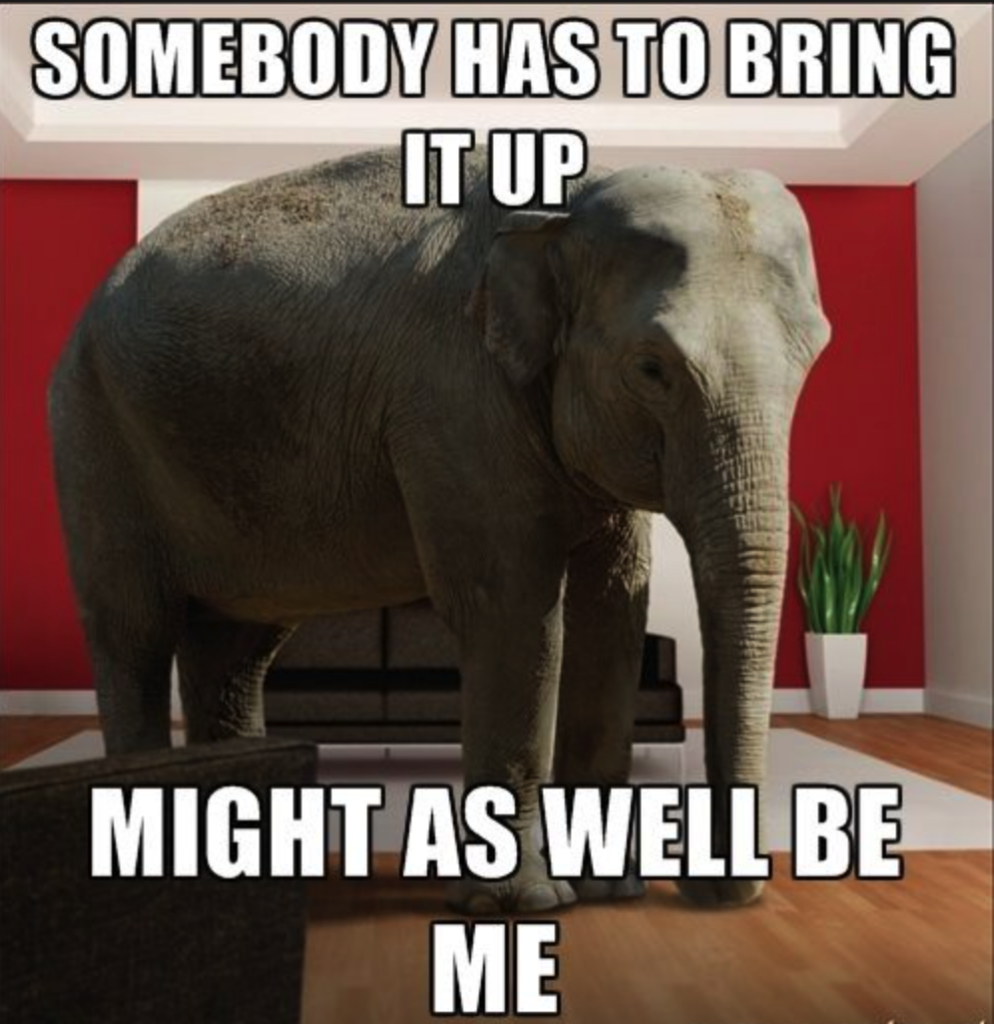

A novel has a LOT of moving parts. Nothing about writing fiction is easy. We are tasked with creating a captivating story that can span anywhere from 50K to maybe as many as 200K words (think Lonesome Dove or Pillars of the Earth).
We need to have a plot, tension, conflict, relatable characters, great dialogue, immersive prose, pacing, theme, world-building, character arc, plot arc and on and on.
Also, the difference between reality and fiction is that everything in fiction has to make sense.
*nods to Tom Clancy*
In life, random bad things happen ALL the time. There is no rhyme or reason. In fiction, however, everything is cause and effect. Everything has to be planned (at least from our end, the author).
Whenever we come up with a plot/story idea, we have to cast the story. Ideally, the MC/protagonist lacks some critical element that would mean immediate defeat. The MC must endure the story gauntlet to even hope to succeed against the antagonist.
Maybe they don’t have enough knowledge, training, or confidence. Think newbie FBI agent, Clarice Starling, in Silence of the Lambs. Perhaps they’re a loner who needs to be better at relying on a team (E.g Tony Stark/Iron Man).
Perhaps they’re too clingy and need to venture off away from toxic “support” that is actually holding them back. Think Evelyn Couch in Fried Green Tomatoes (based off Fried Green Tomatoes at the Whistle Stop Cafe) .
They have no choice BUT to evolve and grow. As the late, great Blake Snyder said, “Everybody arcs!”
False Gods
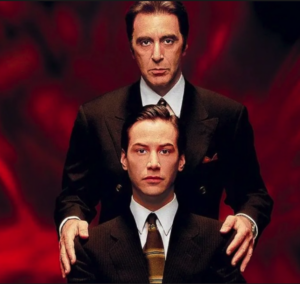

When I teach character creation, I challenge writers to ask one question about all the characters, but the protagonist and antagonist in particular.
What is their false god?
Can you name what THING the MC falsely believes is the solution to all their problems?
Is it more money, status, power? How many stories have we seen where an MC loses their way chasing power? Devil’s Advocate is a great example. The most powerful law firm on the planet recruits Kevin Lomax, a small town, idealistic young public defender who’s never lost a case.
Ultimately he has to choose between unlimited power and his conscience.
What about someone who’s false god is “freedom” which actually isn’t freedom at all, rather it’s really just avoiding responsibility?
In Michael Connelly’s The Lincoln Lawyer, defense attorney Mickey Haller is terrified of responsibility. He never defends ANYONE he even remotely thinks is innocent and only takes cases for (basically) scumbags.
Why?
Because he did defend an innocent early in his career, lost the case, and the kid he defended is sitting on death row. He cannot bear to go through that again. Haller worships his self-delusion that he doesn’t actually care about innocence and guilt…but does he?
In Bridget Jones Diary, Bridget (NOT a lawyer) genuinely believes losing weight and finding love will make her whole. Her false god is this rather superficial view of life, love and romance.
Why False Gods?


If we look at all civilizations throughout human history, it’s easy to see that we are wired to worship something. What do “gods” usually have? Altars. What do worshippers place on an altar in return for “favor”?
Those things they prize the most.
Thus, if we have an MC who dedicates his life to being the best, the richest, the most powerful, whatever…what is he likely sacrificing on that altar?
Anything that actually is worth having: love, family, friends, relationships, etc.
Because he is (possibly) operating out of a WOUND (growing up poor), his vision is distorted as to what exactly he needs and what would ultimately make him happy/safe/fulfilled.
And I just gave y’all the plot to probably fifty Hallmark movies.
No shade on Hallmark, because they do a brilliant job of telling stories audiences love and can relate to. Even me, the gritty, weird horror/speculative fiction writer.
We all cheer when the filthy rich workaholic FINALLY has an epiphany that he’s empty and alone and has been accepting a shill over true bliss. His net worth might be billions, yet it is all meaningless without (insert whatever HERE).
And we can do this with all kinds of “false gods.”


Bridget Jones eventually sees the truth about Daniel Cleaver, the man she’s been obsessing over. He’s narcissistic and shallow (and, to her eventual chagrin, a reflection of who SHE is). Over time, as she matures as a person, she sees the “antagonist” Mark Darcy in a new light.
Darcy, a man that initially drove her to madness, actually is the real deal. He represents a romance with roots, one that can endure. Love isn’t always shiny with bows and ribbons and loving for the long haul requires learning to accept flaws (like her extra few pounds and Darcy’s often acerbic nature).
Darkest Moments are Pivot Points
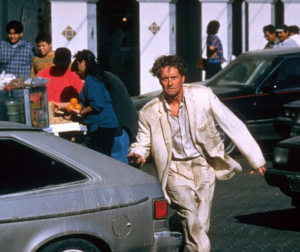

Why the darkest moment is so critical is because it marks the point in time just before the breakthrough. Everything our MC has relied on–connections, money, power, family, bright ideas, super powers, good looks, charm, etc.—FAIL them.
When I teach structure, I “joke” that Act Two is really a bunch of increasingly dumber (smarter) “Bright Idea Fairies.”
The MC is still trying to do things the old way. BUT, if we do our jobs, we, as Author God, should craft an antagonist the MC cannot defeat until they gain a designated level of self-awareness.
If they are a loner, they cannot win unless they have a TEAM. If they’ve always used money to get out of everything, put them in a world where money means NOTHING (E.g. The Game).
In fact, the 1997 movieThe Game (image above) is a fantastic study in this brand of darkest moment. Nicholas Van Horten is just stupid wealthy. Everything (externally) has always fallen in place for him because he isn’t merely wealthy, he also comes from wealth. Problem is, he’s never dealt with his father’s suicide and how that impacted him.
We see his money and power as assets, when in truth, they’re a shell he can use to hide from his inner demons.
When his little brother, Conrad—the family screwup—gives him a GAME as a birthday present, Nicholas has no idea what to think about such a seemingly odd gift.
When does the game begin? How can he know?
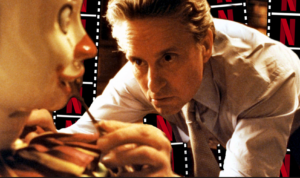

This movie is from 1997 and it is still incredible because we watch Nicholas lose everything. In the beginning, he’s the guy with the private jet that can get into any restaurant without needing a reservation. By the end? He’s literally buried alive and has to claw out of a shallow grave (MESSAGE!).
Once free, he is dirty with no money, no shoes, no nothing. To get home to San Francisco, he must humble himself enough to beg for even the most basic of “luxuries” like food or a ride home. All these “things” he took for granted, he now must humble himself enough to grovel for if that’s what it takes to get answers.
Yes, spoiler alert, but y’all have had since 1997 to see it 😛 . Also, that isn’t the whole story so totally worth a watch and a study.
You Have NO IDEA Who You REALLY ARE
And neither do I.
Until we are tested, we have ZERO idea who we really are. I know that might not be popular to say, but it is true.
I would LOVE to believe that, if aliens invaded, or the zombie apocalypse hit, or whatever, that I would be noble, kind, just and brave. That is being human. We don’t want to think we’d be the one hiding under the bed, running away, or using that obnoxious neighbor as a human shield.
Should have picked up yer dog poo off my lawn, Buddy.
All kidding aside, we tend to have a far rosier view of ourselves than is usually accurate and that is okay. We also, conversely, underestimate what we might be capable of under the right circumstances.
Maybe we will be courageous. Perhaps we will do the right thing even when it will cost us everything. We simply don’t KNOW until those beliefs are tested.
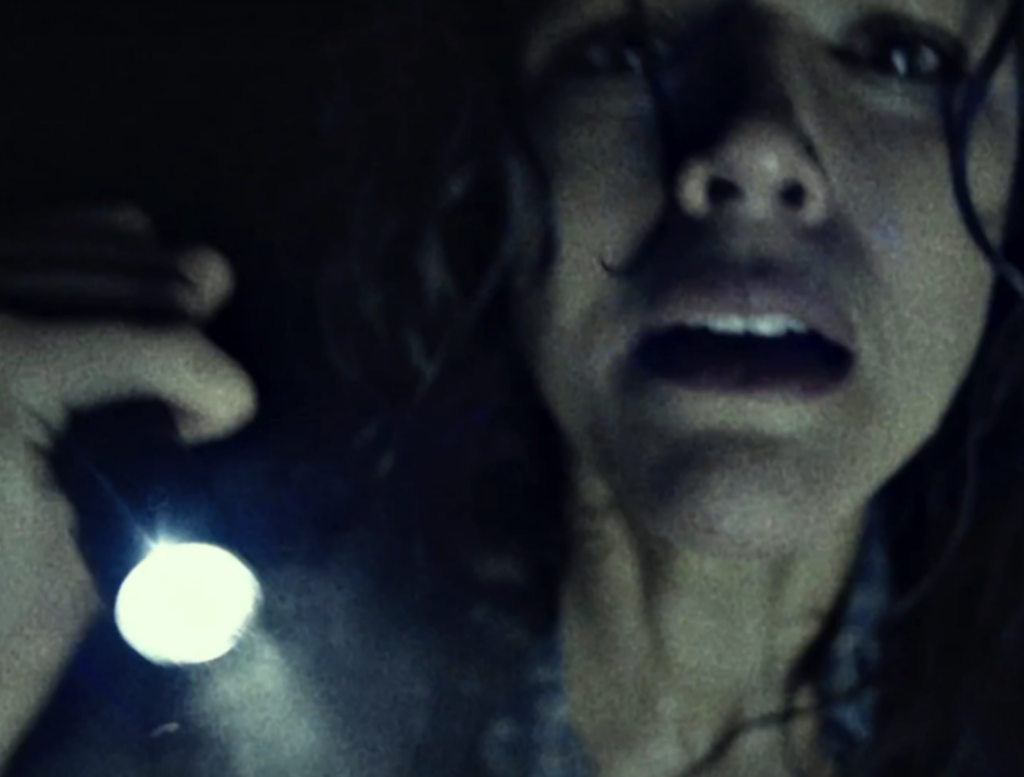

For a great example? Bird Box (movie and book). The character, Douglas, though a hard pill to swallow, makes a lot of great points about this exact topic.
We have no idea what we are capable of doing—good and bad—until tested. Thus, the point of every (good) story is to show this aspect of life in distillate.
Audiences yearn to see that regular people can do extraordinary things or even extraordinary people have to learn lessons we mortals struggle with.
Come on! Even the Norse god THOR battles with pride, ego, arrogance, entitlement and being fickle and shallow. Yes, even the Norse god Thor loves his brother, hurts that his family is estranged, wants love and acceptance, and seeks deeper meaning to his existence.
Darkest Moment in Action
In my opinion, the darker the darkest moment, the better the story. This is the part where we cannot hold back. When I train writers, I have a saying, “Make it worse until you make it weird.”
We should throw everything including the metaphorical kitchen sink at our characters (the MC in particular). The story is the the fiery forge that is going to remove those character impurities and mold a lump of undisciplined, clueless blech and then allow conflict to hammer that MC into someone magnificent.
What refuses to bend eventually will…with enough heat.


We pile everything onto the MC (and allies) and at the end of Act Two, when the Bright Idea Fairy fails them all, we strip everything away.
The darkest moment is the critical point when the MC finally has a Damascus Road experience. The scales are removed from their eyes and, for the first time, they see the truth about themselves and others and how to be authentically triumphant.
Right after the darkest moment is when our MC finally transitions from a mere protagonist to being worthy of the title HERO.
We Develop in the Darkest Moment
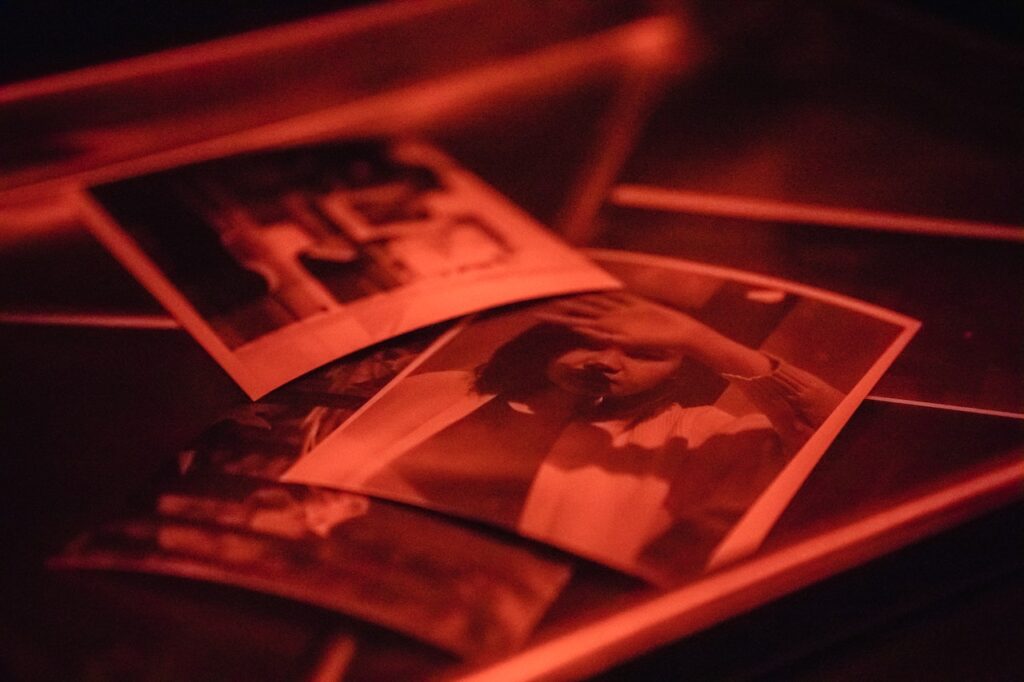

Darkest moments are like dark rooms in photography. Very counterintuitively, we must immerse ourselves in the blackness to reveal the true picture.
I imagine most of us cannot make it too long in life without tragedy visiting. All of you have your stories, which is probably why you’re here. Writing is cheaper than therapy, right?
We love working through our traumas, heartaches, disillusionment by telling stories.
Which is great because humans are a story people!
Whether it is a cozy romance that reminds us love is still alive and romance still possible or an action-packed thriller where bad people get justice not plea deals.
We need catharsis!
Fiction operates in extremes. We love the characters who stand a snowball’s chance in hell (E.g. the Hobbits in LOTR), who have so much to learn that we have NO idea how they’ll survive. But they do. And they WIN.
Yet, we ALSO love the stories involving characters with everything going for them, who finally come up against a problem/foe that demands more than the obvious trappings of power (Dr. Strange, The Game, Stepford Wives, Game of Thrones).
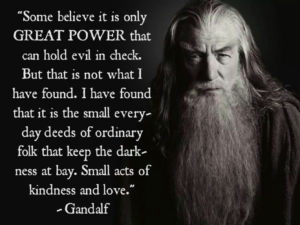

Stories matter. What we write matters. Writers carry the torch of hope and, as long as there are stories, people will have footsteps they can follow from the pages into their own lives.
When We LOSE, We WIN
Fiction shows us that, no matter how bad things get, there is always a chance at a new beginning.
Ultimately, I believe hope springs eternal so long as there are writers in the world. Ideally, now that we’ve taken a deeper dive into what the darkest moment is, what it means and why it is SO important, you’ll look at your stories with fresh eyes.
Maybe people need to remember there is still goodness in the world, that good guys win, justice can happen, the odds are never too great, one is never too old or too young or whatever.
The darkest moments in life—and in story—often mean more than we realize.
The darker the night, the more spectacular the dawn.
What are YOUR Thoughts?
I’ve missed y’all! What are some of the most profound darkest moments you can think of in cinema or books? Have you ever had something happen in life SO AWFUL that the only way to make it make any sense was to turn it into story? What are some of your favorite comebacks? Any thoughts on the darkest moment at all? Y’all always have such brilliant perspectives.
I LOVE COMMENTS!
To prove it and show my love, for the month of AUGUST, everyone who leaves a comment, I will put your name in a hat.
I actually have landed agents for people who’ve won this contest. Agents like me because I make their lives easier.
If you comment and link back to my blog on your blog, you get your name in the hat twice. What do you win?
The unvarnished truth from yours truly (and maybe even time with an agent).
I will pick a winner once a month and it will be a critique of the first 20 pages of your novel, or your query letter, or your synopsis (5 pages or less). People with superlative writing, I (with your permission) have been known to pass you onto an agent.
Anyway, I look forward to reading your comments and your writing!
